22/04/2015
Artist Ekaterina Smirnova. Looking East ...
Receive messages on the diary post.
Artist Ekaterina Smirnova. Looking East ...
Ekaterina Smirnova was born in 1970 in Moscow, but her childhood was held in Japan. One of the strongest and favorite children's experiences - the water element. Japanese aesthetics for water in any of its manifestations - be it the mighty ocean, a small babbling brook or the glassy surface of the pond is always an endless variety of single essence, the whole world, visible through a small. This vision is for a lifetime. The concept of space and the nature of Japanese culture is quite different than in Europe. The artist was close both.
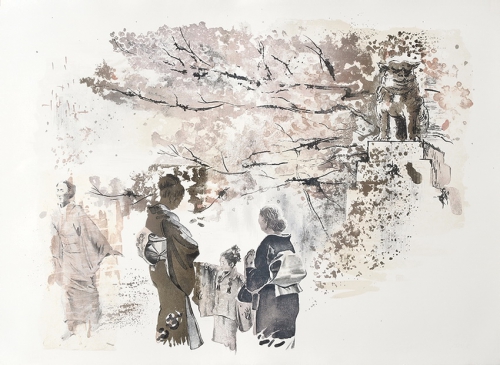
Tsvetenie. Lithography, collage
In memory of the artist preserved the memory of how she perceived the winter in Japan. In contrast to the homeland, where the winter is associated with the snow fell, the Japanese winter remembered dry springy grass like carpet covers the ground, and people hiding from rarely snows under umbrellas.
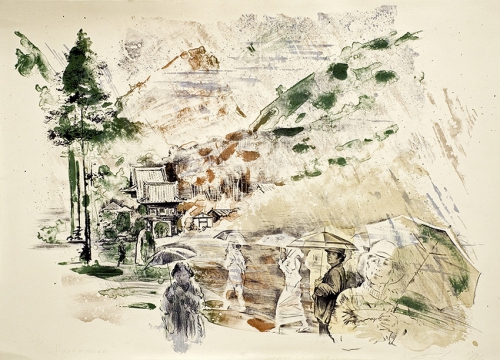
Palomniki. Lithography, collage
Catherine received his artistic education in MGHAI them. VI Surikov. In 1997 he won the Grand Prix "Tetterode Graphic Trophy". Laureate of the Union of Artists of Russia. In 2003 she was awarded the diploma of the Russian Academy of Arts. Since 2010, the head of the lithographic workshop MGHAI them. VI Surikov. Catherine creative manner peculiar: it lithographic sheets are more like drawing with a brush, which is dipped in ink. His works are in museums and private collections in Russia, the USA, the Netherlands, Austria, Spain, UK, Czech Republic, India, Indonesia, China, Germany, the Philippines, Japan. Lives and works in Moscow Ekaterina Smirnova.
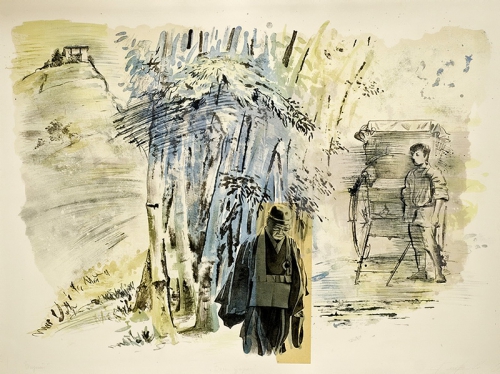
Vizit. Lithography, collage
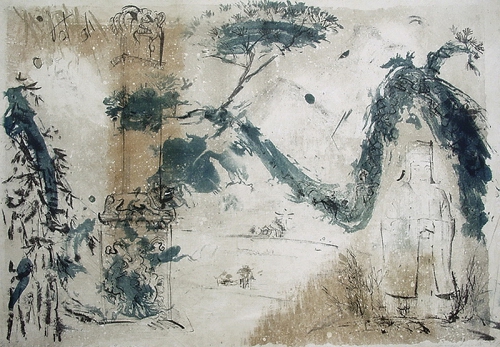
Puteshestvie the East. Lithography
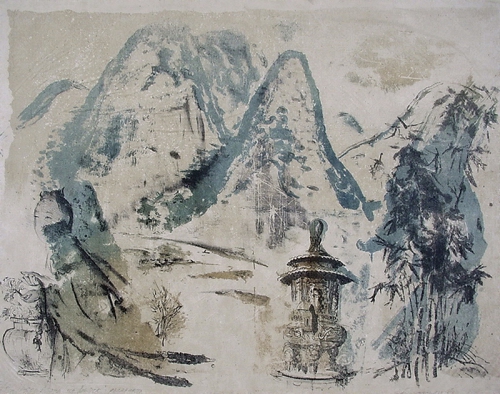
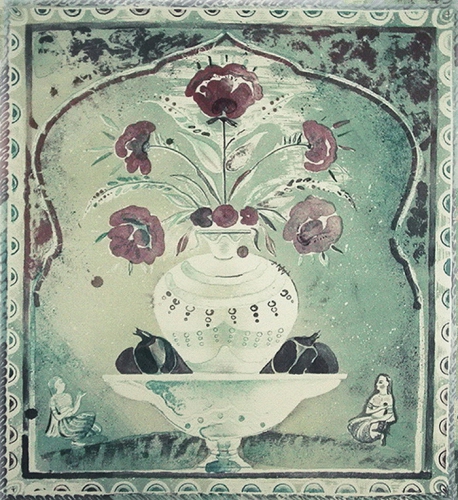
Silk Road. Lithography
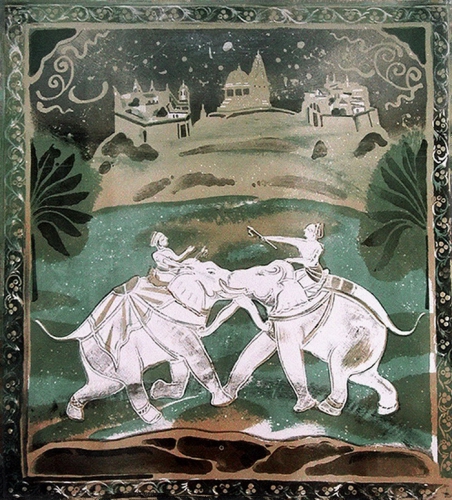
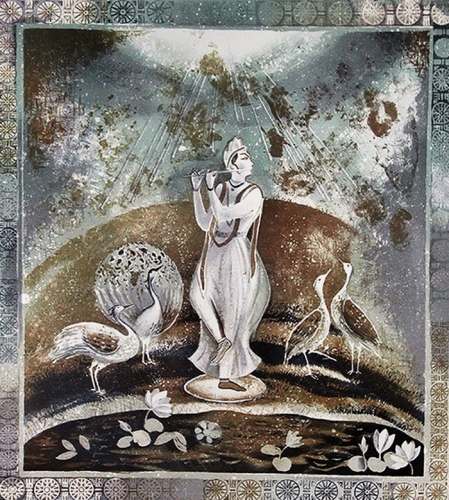
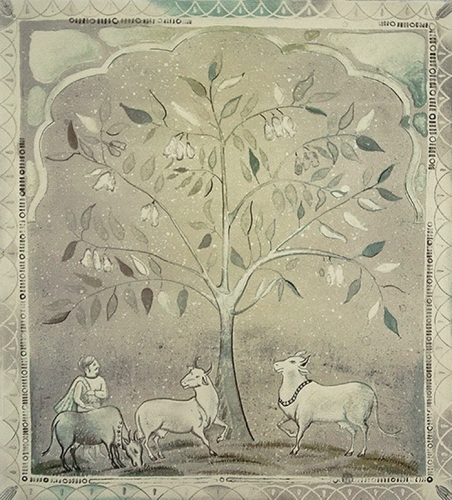
Shelkovy way. Lithography, collage
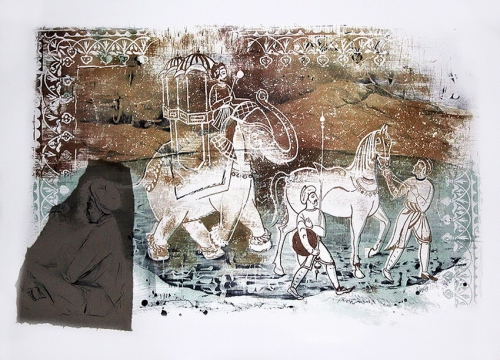
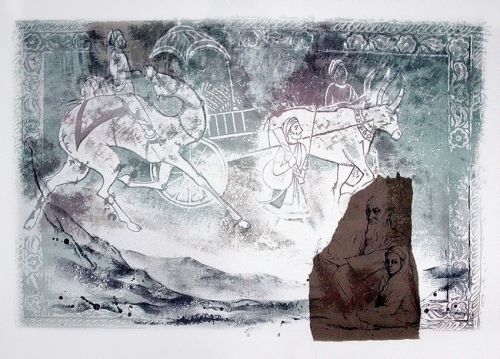
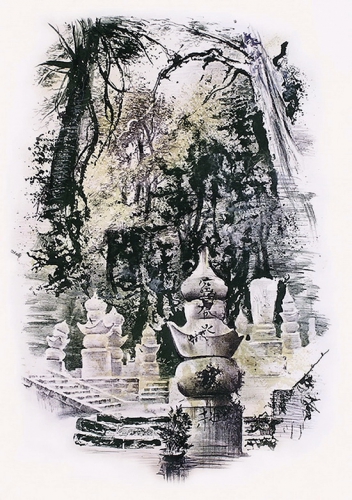
Evening. Lithography

Gift from the sun. Lithography
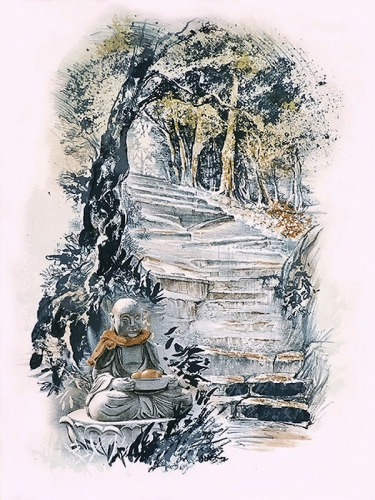
Well. Lithography
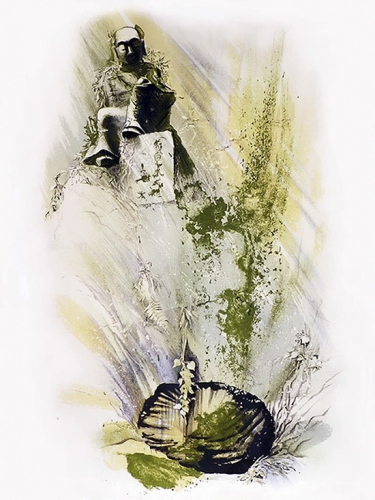
Gorge. Lithography
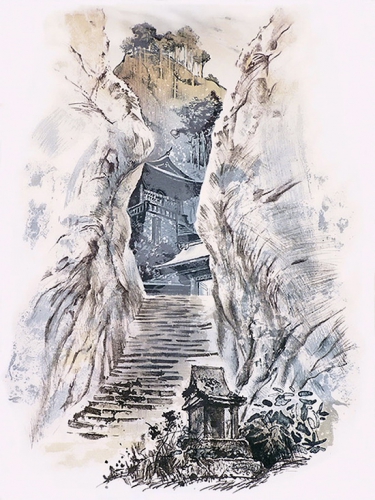
Over the bridge. Lithography
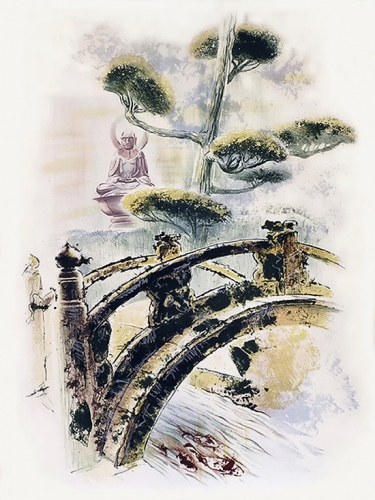
Season camellias
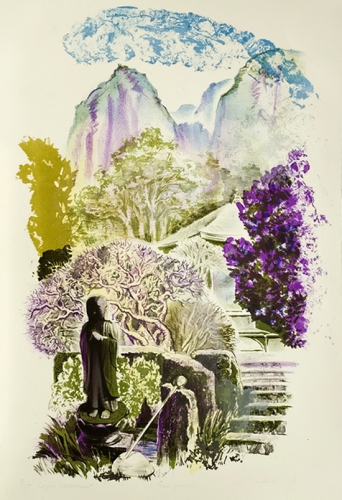
The key to Paradise. Spanish still life. Col. lithography
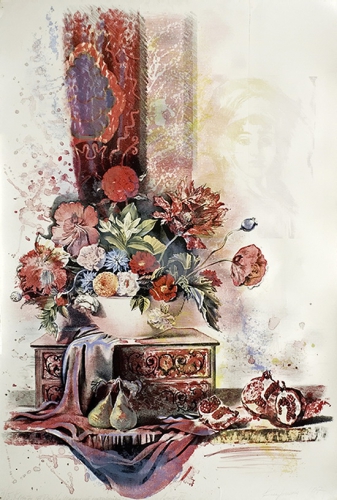
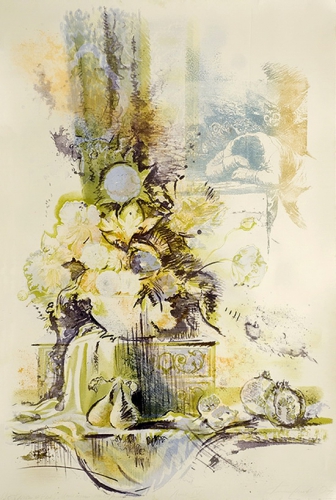
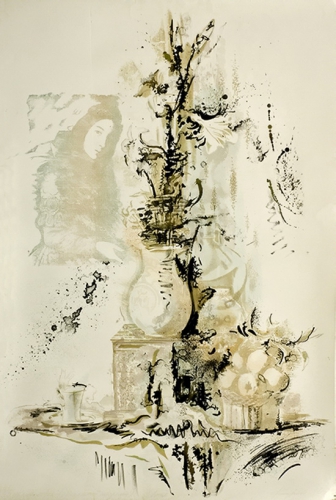
Spanish still life.
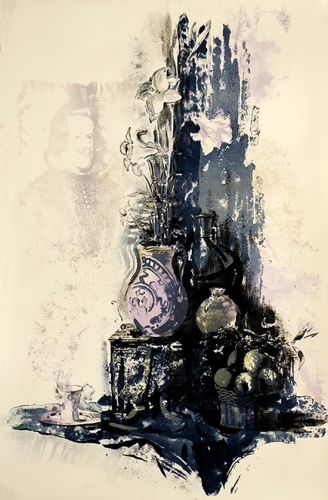
Weather forecast - sudden change. Lithography
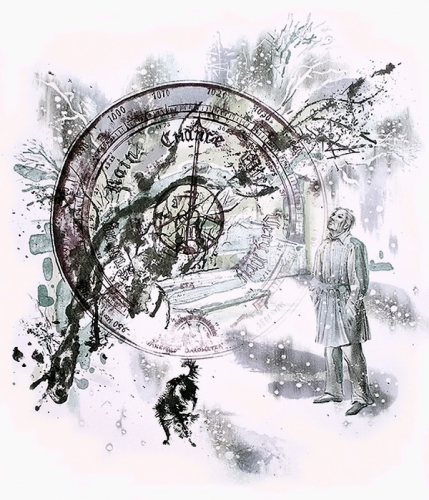
Weather - Storm
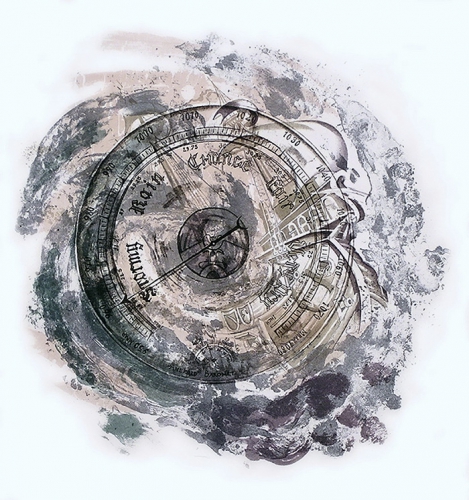
Weather forecast - rain
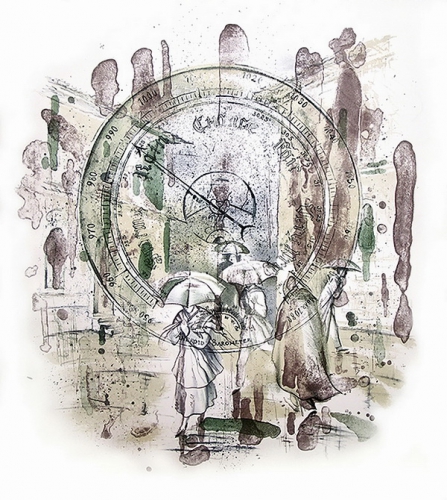
Weather forecast - heat
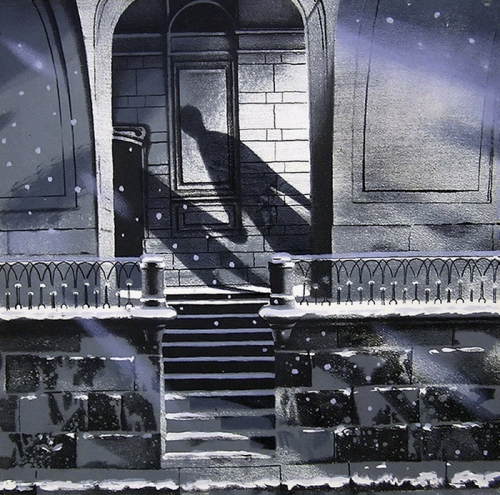
Family Archives. XX century. Lithography
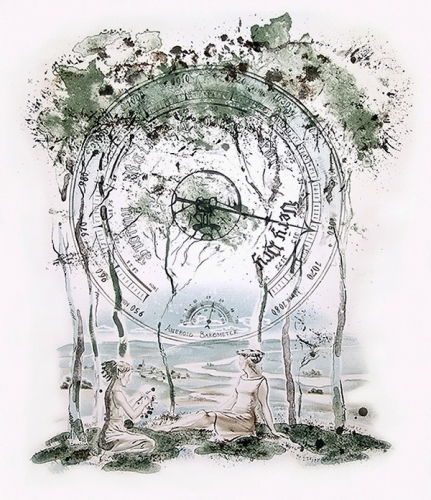
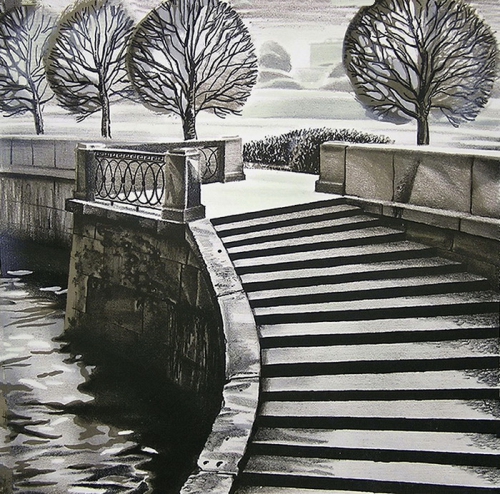
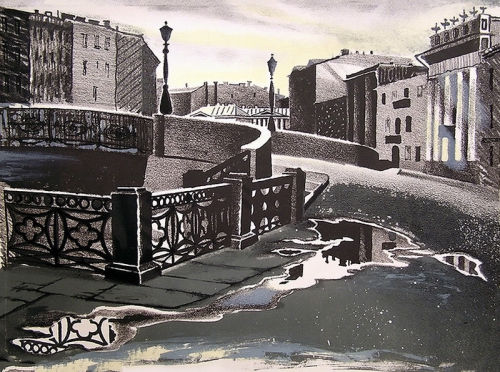
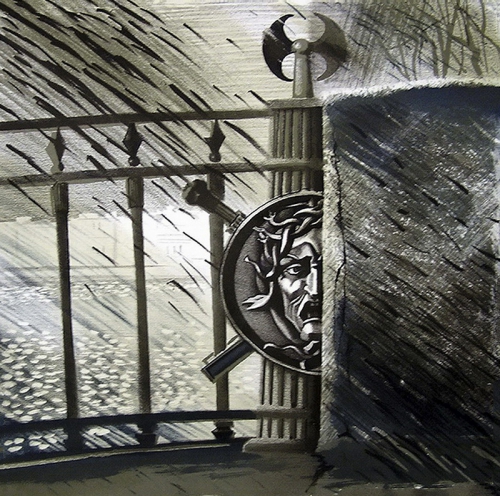
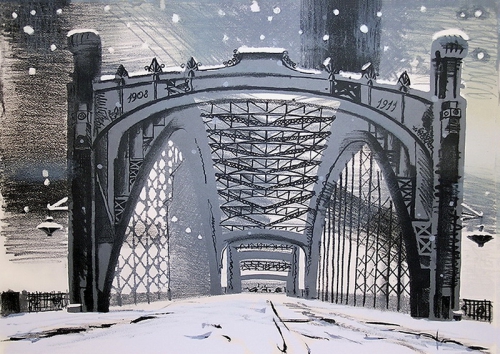
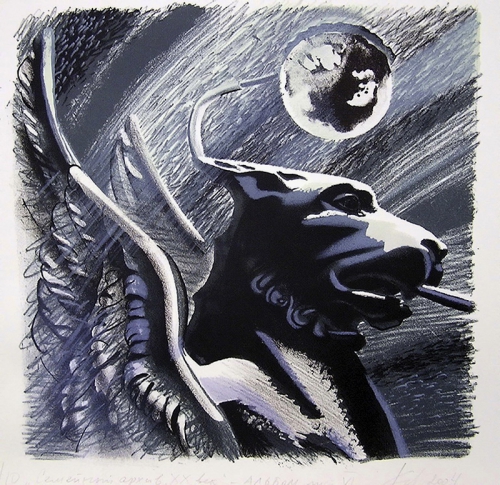
Letopis hostilities. siege. Col. lithography, collage
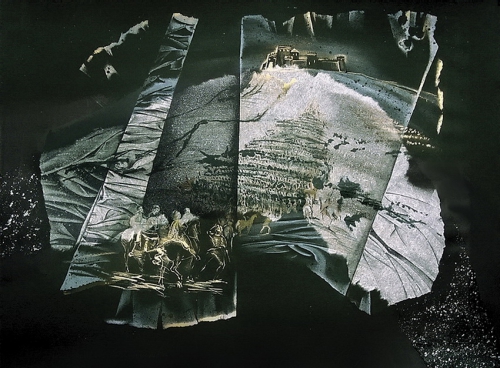
Letopis hostilities. Hike
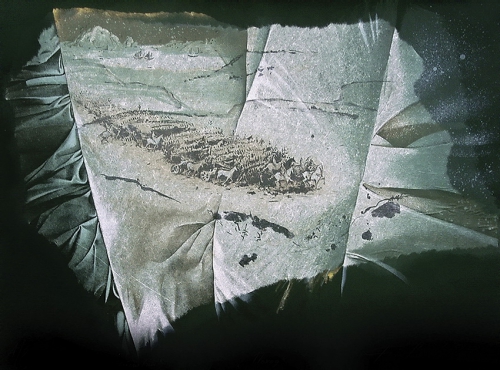
Letopis hostilities. Battle. Col. lithography, collage
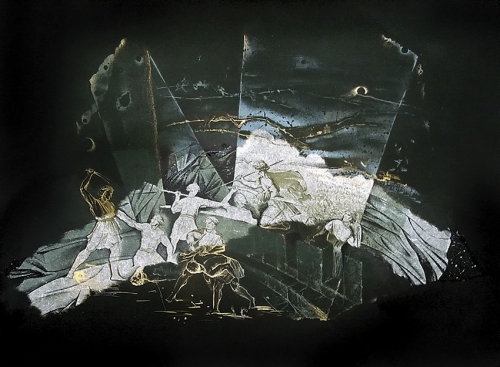
Letopis hostilities. Victory
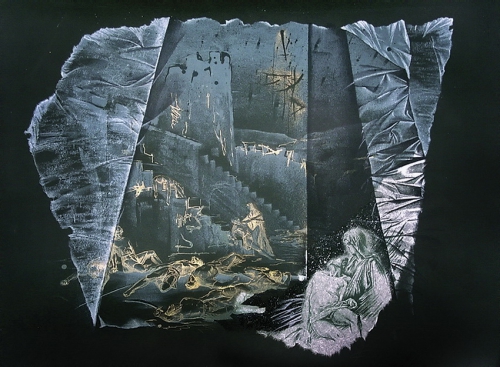
Semeyny archive. XX century. Col. lithography, collage
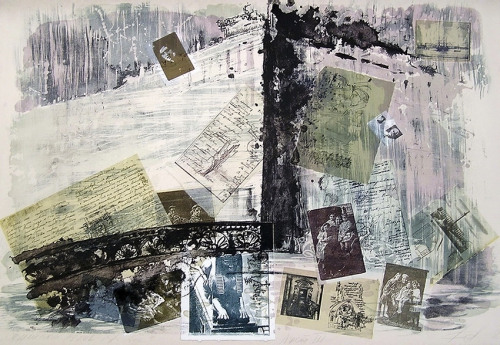
Semeyny archive. XX century. Col. lithography, collage
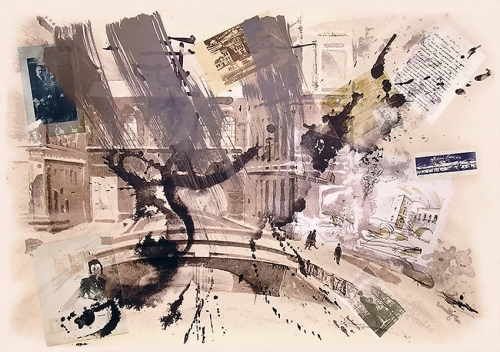
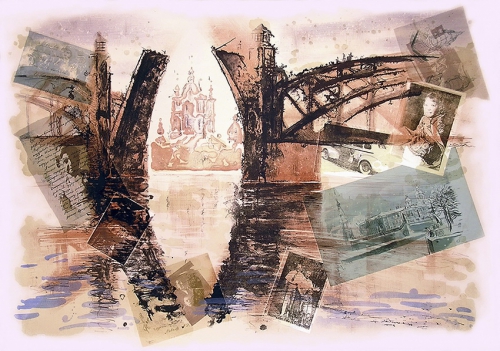
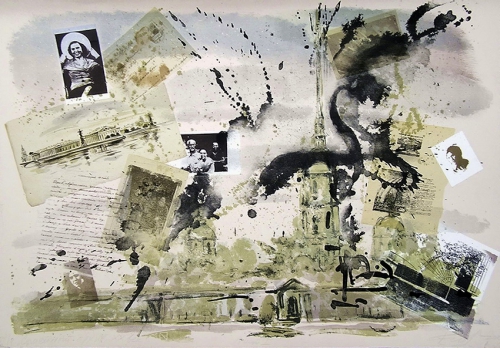

Music: Keiko Matsui - The Road
04:42 | Lien permanent | Commentaires (0)
16/04/2015
Autumn near Moscow
Receive messages on the diary post.
Autumn near Moscow
Dmitry Cedrenus
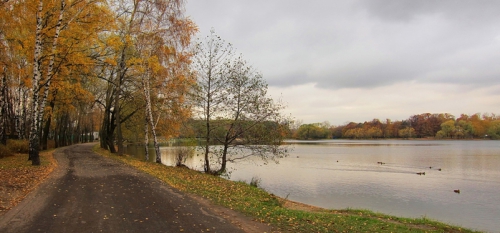
That night life. Late evening.
It's cold and there is no fire in the house.
The lamp burned out. Nothing else
Disperse the darkness thickened.
Light of dawn, look at my little window!
Angel of the night! Spare me:
I want to see the sun again -
The morning sun!
Autumn near Moscow
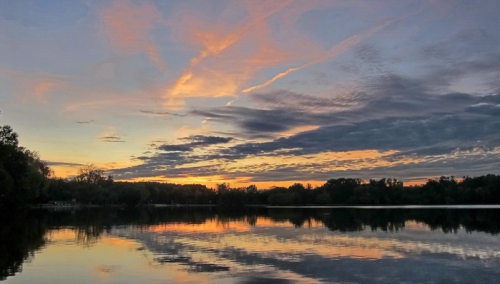
In the First come near Moscow Autumn
With mushrooms, rowan, renovated cottages.
You're more canvas jacket dropping,
Do not catch a tennis ball racket.
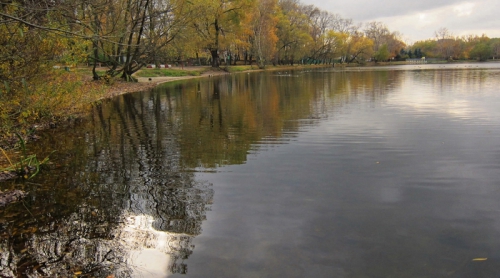
Birches are transparent, birdhouses dumb,
Mornings frost crunches through the gardens:
And Summer Resident in town carries chrysanthemum,
And cottager links suitcase.
On wet meadows zazheltelas cloudberries.
Hunter in a transparent and echoing woods
According to Carr turf stepping Gatehouse,
Game bag carries a golden fox.
A bottle of wine sour, like yeast.
Smoke, pour and listen to
Noise elegiac Pushkin rain
Candle and shaky shake draft.
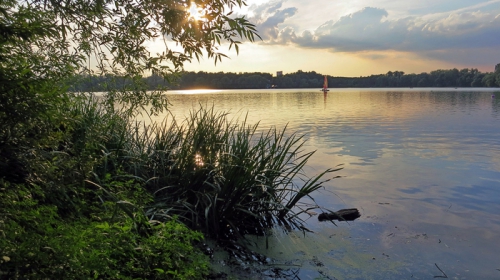
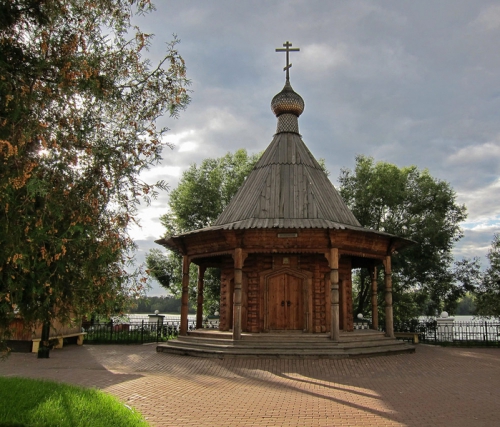
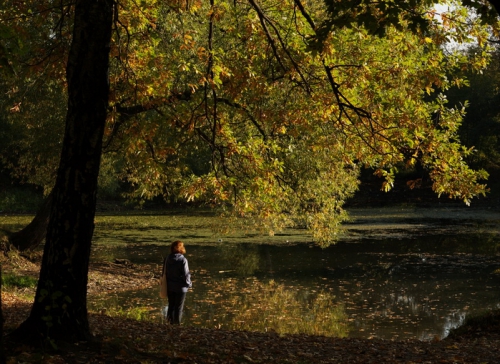
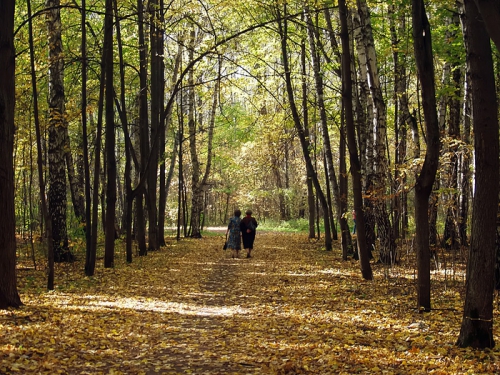
8

07:56 | Lien permanent | Commentaires (0)
13/04/2015
~ Su Tianci ... Chinese cycle Gumilev ~ ...
Receive messages on the diary post.
~ Su Tianci ... Chinese cycle Gumilev ~ ...
~ My heart beat like a hunted animal,
And like the unknown vistas ... ~
Chinese cycle Gumilev ...
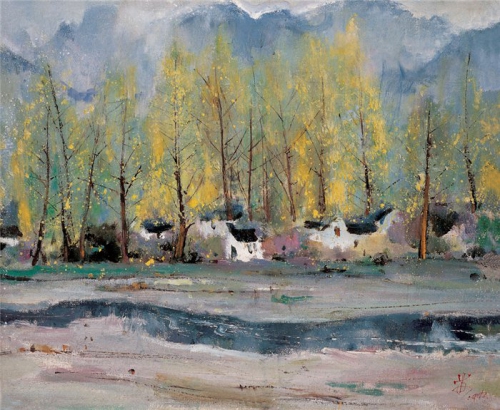
"All of us, comrades, we believe in the sea, we can sail to distant China ..." - exclaimed back in 1910, Nikolai Gumilev, a poet of the Silver Age, fine lyricist, singer "Romantic Flowers" and overseas countries. However, he believed not only in the sea, but also a "wondrous mystery of dreams" in the stars with "frozen sky" and in distant countries of happiness - even beyond the life ...
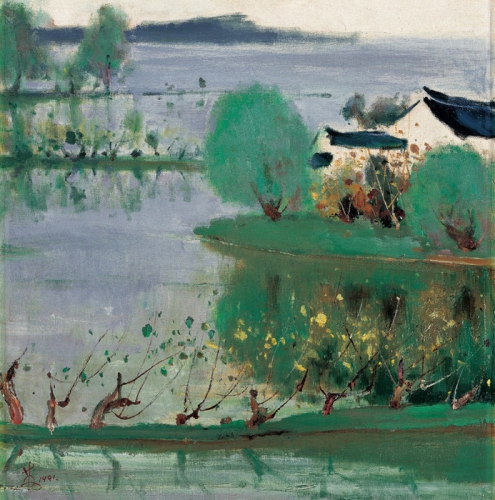
Muse wanderings was conductor of the poet in the jungle of Central Africa, in the fire-breathing sands of the Sahara, in the upper high-water of the Nile, in the dark mountains of Abyssinia and exotic forests of Madagascar, in the ancient cities of Europe and the Middle East, the Antilles and in the Mediterranean ...
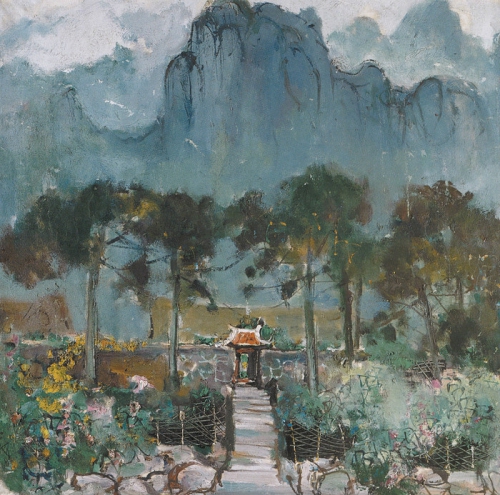
Old nurse was right in his prediction of a stormy night of Nikolai Stepanovich Gumilev April 3, 1886: "We will Rings turbulent life." Indeed, it was. And the fate of kept it all travels and wanderings-up to the execution in 1921 ... Who knows, maybe not tear off his life so suddenly - he could make the trip, which dreamed of in his youth, and which was not destined true - in China.
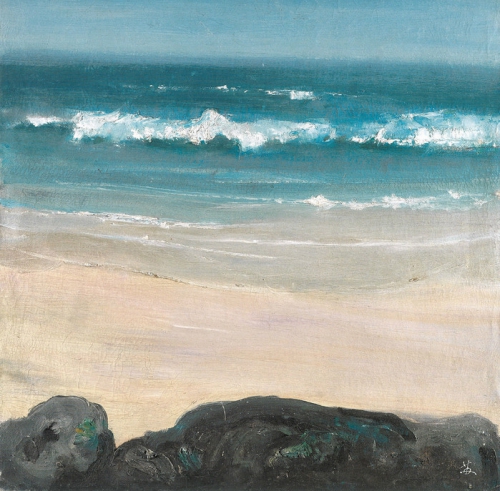
Interest in the country arose in Gumilev long before the creation of the collection of Chinese poems "Porcelain Pavilion". It is no coincidence in the poem "Journey to China" (1910) he wrote: "In China alone, we cast anchor, at least on the way and meet death!" (Right textbook: "to see Paris - and die," is not it?) Alas, failed him, throwing a "treasured paradise", to admire dalyu in the "pink foam" dream in the night at the palms and admire the Chinese maidens, "obvivshimi hip green cloak" ...
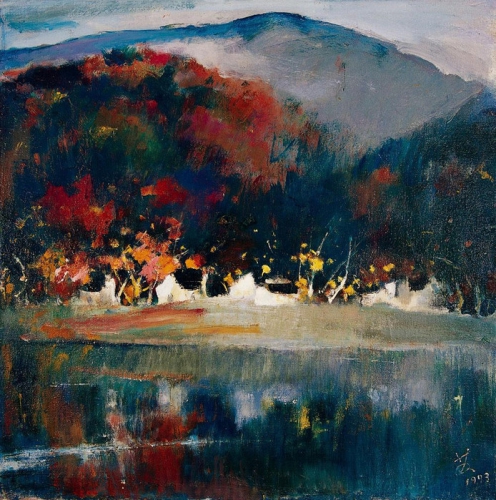
The artist was attracted to his poetic culture of this country, "thingness" objectivity Chinese poetry with its apparent penchant for philosophical generalizations. Besides beautiful, exotic, rich colors and sounds of China could not be his another area, "the promised land", where he, at least mentally, could take away his beloved sea captains. The desire to visit Gumilev "of all the oceans' influence, paradoxically, paintings of French artist Paul Gauguin postimpressionist that he saw at the Salon back in the days when he was a student of the world famous Sorbonne. There, in France, in 1918, Gumilev begins to create a free adaptation of Chinese authors, full of philosophical meaning: "The moon on the sea", "Nature", "Road", "Connection", "Happiness" - the very names of the Chinese cycle of poems speak of effort to understand the poet's eternal questions of life.
Mahogany boat washing,
And my flute made of jasper.
Output water stain on silk,
Wine - an alarm from the heart.
And if you possess light rook
Wine and sweet woman,
What do you want more? You're all over the
Like a genius sky.
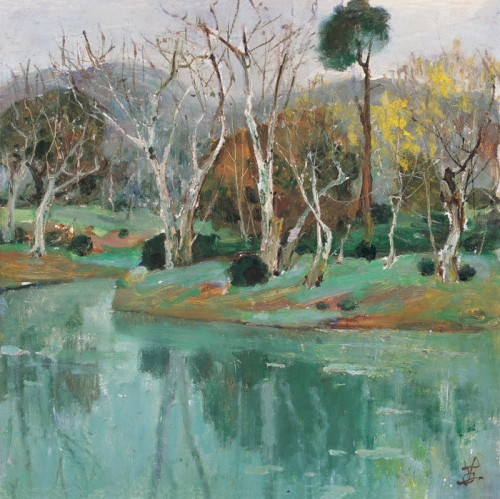
Exact correlation "Russian-Chinese" poetry is not noticed. Only managed to Paris Album establish the names of poets whose work in French translation became the basis of arrangements Gumilev: Li Tai Pe (or Lo Po), Lee Sung Chan (Li or Oei), Chan Chi - or Chan Ji Wan Tia (or Van Ji), Tze Tia, Sao Nan. Chu Fu, Tang Soo Io (or Chang Jo Su). And yet, despite the fact that Chinese wisdom Gumilev brings to us through the mediation of the French language, he managed to keep in his poems the innermost thoughts and feelings, which invested in their works of Chinese masters.
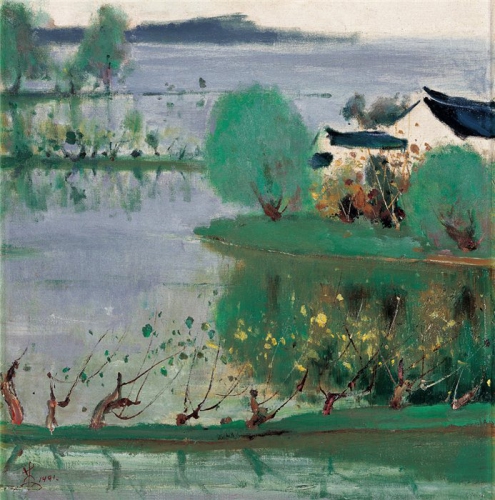
By assumption G.Struve, one of the wonderful poems of this cycle - "Connection" - inspired by love-romantic relationship with Elena D. Gumilev, his "blue star" who lived on one side of the Seine, and the poet himself - on the other. But this is only really-event binding to philosophical reflection on the impossibility of happiness.
The moon rose in the night sky
And light, rests lovingly.
Evening breeze on the lake wanders,
Kissing overjoyed water.
Oh, how divine connection
Eternally made for each other!
But people made for each other,
Connect, alas, so seldom.
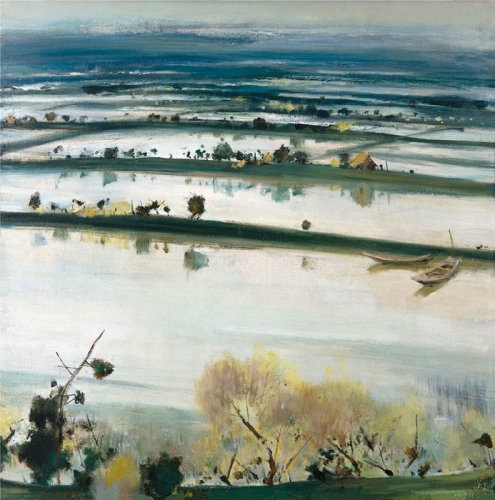
"Where the road ends thoughts - are beginning to listen. Where words cease to express - there begin to contemplate, "- says the ancient Chinese saying. Like the above, we want to listen and contemplate Nikolai Gumilev line, because every word carries its colors and its sounds.
Among the artificial lake
Rose porcelain pavilion,
Tigrinya his back arched,
Jasper bridge leads to it.
It is said that to understand the philosophy of Chinese sages not given to everyone, and through the poetic word - even more so. Perhaps because of poems Gumilev this understanding will come to us ...
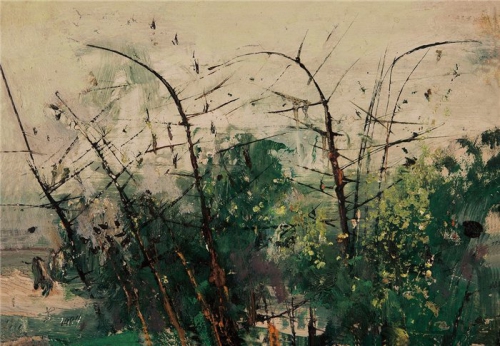
Nature
Quiet little lake,
Like a bowl full of water.
Bamboo is very similar to the hut,
Trees - like the sea of ??roofs.
A rock sharp as pagodas,
Exalted among the flowers.
I think the fun that eternal
Nature learns from us.
Gumilev
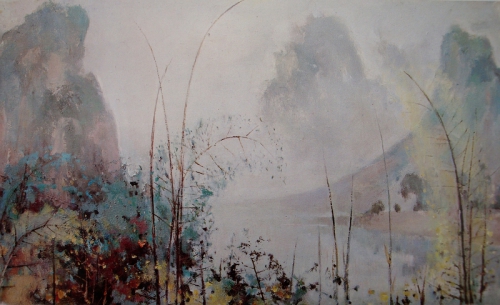
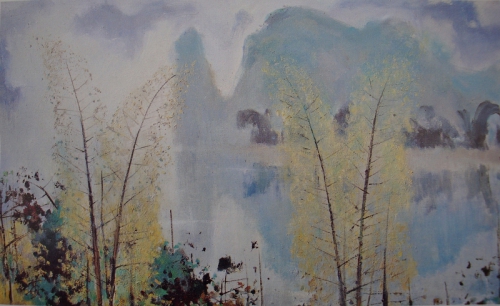
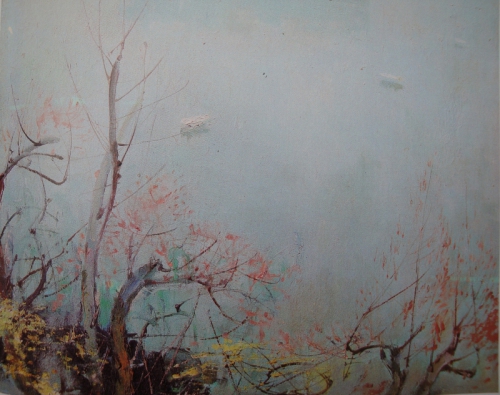
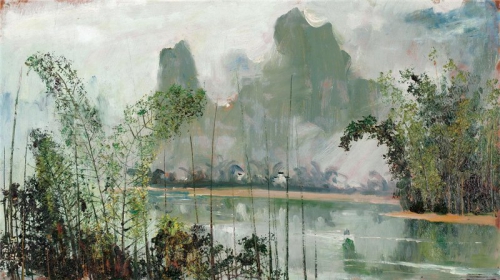
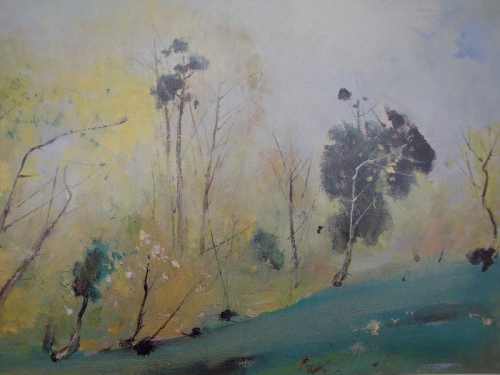
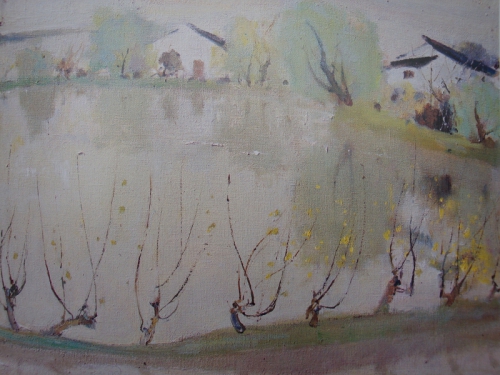
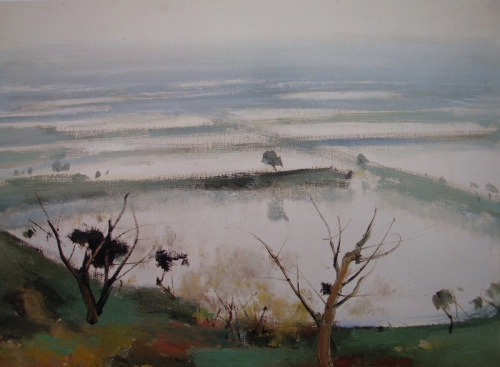
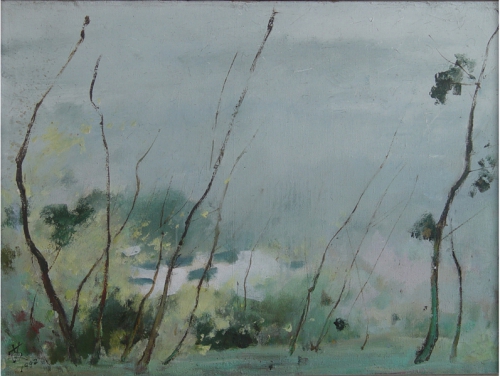
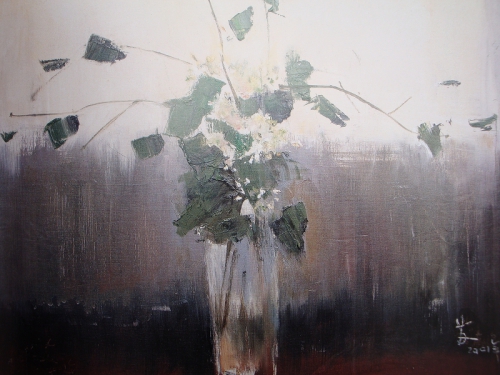

10:55 | Lien permanent | Commentaires (0)